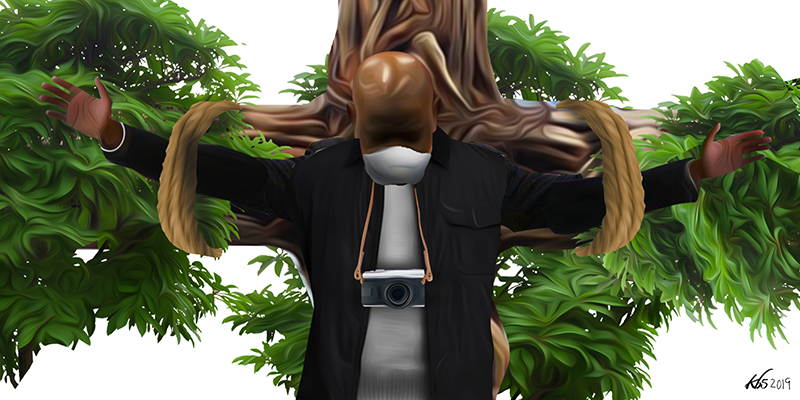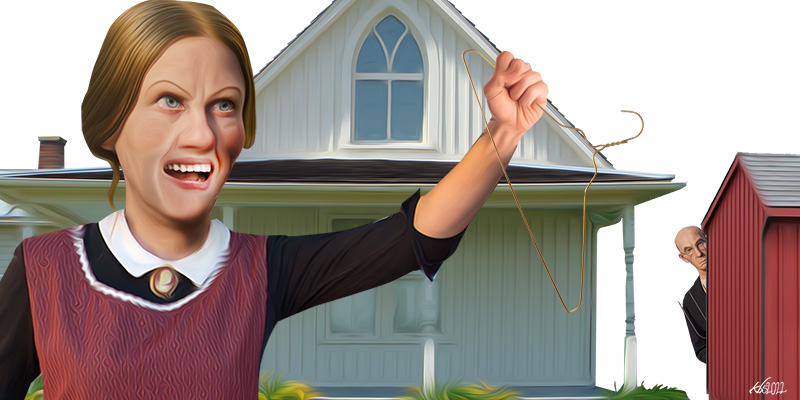In March 2017, Guatemalan fishermen noticed that some parts of the country’s largest lake had turned a strange reddish colour. Fearing that the apparent pollution would scare customers away from buying fish, they asked the local government to investigate.
Lake Izabal is near the Compañía Guatemalteca de Níquel mine, which is owned by the Switzerland-based Solway Group. After weeks passed with no response, the locals became desperate. Hundreds of protestors from the closest town of El Estor blocked the roads that led to the mine, preventing ore deliveries to the port of Puerto Barrios. About 41 per cent of the nickel mined was slated for export to Ukraine.
Twelve days into the blockade, on May 27, clashes broke out after the government broke an agreement to meet with the fishermen. Riot police fired tear gas and dispersed the protesters; multiple gunshots were reported.
Fisherman Carlos Coc Maaz was shot and killed that day. His lifeless body lay on the road for hours, according to his widow, Cristina Xol Pop. “We called the prosecutor’s office to pick up his body, but they didn’t arrive,” she told Forbidden Stories. “He had already spent half a day lying on the ground, so we picked him up. We took him home.”
The prosecutor of the Human Rights Office, Hilda Pineda, told reporters that an investigation about possible police involvement was ongoing. Authorities initially denied that anyone was killed that day, but local journalists Carlos Choc and Jerson Xitumul with Prensa Comunitaria took photos and a video showing that a protestor had indeed been shot.
Barely a month after the clashes, the prosecutor’s office accused the journalists, along with five fishermen, of six offences: threats, instigation to commit a crime, illicit association, illicit meeting and demonstrations, damages, and illegal detention. According to the indictment, the reporters allegedly participated in a protest in which four Solway workers were held illegally for several hours.
Xitumul was arrested, and both journalists faced harassment and threats.
At least 13 journalists have been killed while reporting on environmental stories around the world in the past decade, and 16 more suspicious deaths are being investigated, according to the U.S.-based Committee to Protect Journalists. Forbidden Stories – a consortium of 40 journalists from 15 media outlets, including OCCRP – also found that journalists investigating environmental issues often face arrest, harassment and violence.
“When journalists are reporting on environmental issues, they are often reporting on companies or corrupt actors who are in complete alliance with the government,” says Bruce Shapiro, executive director of the Dart Center for Journalism and Trauma.
At least 13 journalists have been killed while reporting on environmental stories around the world in the past decade, and 16 more suspicious deaths are being investigated, according to the U.S.-based Committee to Protect Journalists.
“This means that their enemies become some of the most dangerous people in the world, and I’m hard put to think of a category of investigative reporters who are routinely dealing with more dangerous actors than environmental journalists,” Shapiro says.
In Choc’s case in Guatemala, a group of armed men attacked his sister’s home and started shooting. The journalist went into hiding for several months and was forced to sell his camera and motorbike to support his family. He kept the computer where he stores his work.
Trouble in Tanzania
Forbidden Stories conducted investigations in Guatemala, India and Tanzania this year to report on the dangers journalists face when reporting on multinational mining companies.
In Tanzania, local and foreign journalists have struggled to report on the impact of a remote gold mine owned by Acacia Mining, whose majority shareholder is Canadian mining industry giant Barrick Gold Corp.
“The North Mara Gold Mine is more than a thousand kilometres from Dar es Salaam, where almost the entire press is [based], and therefore it is very difficult to have reporters keeping [tabs] on what is happening in these remote places,” said Tundu Lissu, a Tanzanian opposition politician and lawyer who previously represented small-scale miners in the region.
Residents near the mine have suffered from the environmental consequences of gold mining for more than a decade. The industrial mining techniques produce harmful heavy metals, high levels of which have been found in the local water supply.
Mark Nega, who worked in the area as a district medical officer in 2013, said he saw about six patients apparently affected by the water near the mine. “They go to wash [in] that water [near] the mining area and they get [a very bad skin reaction].”
In 2009, a study found high levels of heavy metals and cyanide in the mine’s vicinity. Heavy metals such as arsenic, cadmium and lead are frequently found near gold mining sites in elevated concentrations.
In May, authorities fined Acacia Mining $2.4 million for allegedly violating the country’s environmental regulations and for failing to comply with government directives to fix the mine’s leaking tailings storage facility where waste is kept.
In 2009, a study found high levels of heavy metals and cyanide in the mine’s vicinity. Heavy metals such as arsenic, cadmium and lead are frequently found near gold mining sites in elevated concentrations.
Locals have also alleged human rights abuses for years.
Samuel Muchugu Wambura, a father of six from Kerende village, was killed in 2016 by an officer of the Tanzanian police force, which contributes to the mine’s security, after he crept onto the property searching for gold. Local artisanal miners lost their primary source of income in 2002 when the North Mara Gold Mine began commercial production.
Wambura’s death came about two years after Acacia Mining settled out of court with people from the region who sued the company over alleged injuries and fatalities at the mine, and after Acacia announced its commitment “to promoting human rights and appropriate conflict resolution practices.”
In a statement, Barrick Gold said it doesn’t exercise operational control over Acacia and that it encourages those who do to implement policies and programmes in line with the U.N. Guiding Principles on Business and Human Rights.
Acacia told Forbidden Stories that “the Mine has not yet received any supporting reports, findings or technical data in relation to the environmental protection order or the recent statements by the Minister of State in the Vice President’s Office for Union Affairs and Environment or the Minister for Minerals.”
Tanzania’s Minister in the Vice President’s Office for Union Affairs and Environment, January Makamba, told OCCRP that part of the blame for the mine’s negative impact on neighbouring communities lies with the government.
“It’s been ten years [since we noticed the problem] and the tailing storage facility is still polluting, is still seeping,” he said, referring to the Acacia waste storage facility that was sanctioned. “We have a bit of responsibility and part of our blame is to consistently believe what the mine was telling us.”
Makamba placed most of the responsibility with Acacia, whose “non-compliance, over a long period of time, of government’s directives […] have been all ignored,” he said.
A difficult environment for journalists
But the government has also created a difficult environment for journalists to act as watchdogs. In Tanzania, press freedom has been on the decline, especially since the election of President John Magufuli in 2015. The country currently ranks 118th out of 180 on Reporter Without Borders’ World Freedom Index, dropping 43 places since 2015.
Tanzania’s 2015 Cybercrimes Act authorised imprisonment for at least three years, a fine of not less than 5 million Tanzanian shillings ($2,175), or both for knowingly publishing information or data deemed “false, deceptive, misleading, or inaccurate,” which has led to prosecutions of reporters and regular citizens.
“Since coming into force, the law has been invoked to persecute dozens of individuals and journalists,” civil society groups wrote in a 2018 statement to the president. “In one week alone, five private citizens were charged under the Cybercrimes Act for statements made on Facebook, WhatsApp and other social media platforms, including a three-year sentence handed down to a private citizen for insulting President John Magufuli on Facebook.”
Tanzania’s 2015 Cybercrimes Act authorised imprisonment for at least three years, a fine of not less than 5 million Tanzanian shillings ($2,175), or both for knowingly publishing information or data deemed “false, deceptive, misleading, or inaccurate”…
In March, the East African Court of Justice ruled that parts of Tanzania’s 2016 Media Services Act — which civil society groups say allows the government to decide who is a journalist and which criminalises defamation and so-called sedition — violate the East Africa Community treaty’s commitment to good governance, principles of democracy and the rule of law. The court directed Tanzania’s government to bring the Act in line with the treaty.
“There is great fear among journalists nowadays – especially those who criticise the government,” says Jabir Idrissa, a journalist from Zanzibar, an island off the coast of Tanzania. Around two years ago he was working for the Swahili-language weeklies MwanaHalisi and Mawio, both of which have since been banned by the government and are part of the same newspaper group. In 2009, he started to report on environmental pollution in Tarime, the district where the North Mara gold mine is located.
“We had a long discussion in the newsroom when we were choosing which stories to [go] with,” Idrissa says. Reporting on them was deemed risky because “the top big shots did not want the public to know about it – what was inside the contracts between Acacia and the government.” Even so, they went ahead and published. “Journalism is a job of telling the truth to the people,” he says.
In June 2017, Mawio published an article linking two former presidents to alleged irregularities in mining deals decades earlier. The same day, Tanzania’s minister of information, culture, arts and sports, Harrison Mwakyembe, banned the newspaper for two years.
The editor-in-chief of Mawio, Simon Mkina, told a news agency that he began receiving threatening phone calls. Idrissa lost his job and was unable to find work in journalism again. He started working in a clothing shop in Zanzibar so he could support his children.
Forbidden Stories has identified a dozen journalists who have been arrested, threatened or censored by Tanzanian authorities for reporting on mining.
“In emerging economies where people depend on natural resources and those natural resources are very valuable to industry or to the government, that can become a very dangerous situation for journalists who are covering the extraction of those natural resources,” said Meaghan Parker, executive director of the U.S.-based Society of Environmental Journalists.
‘A real chilling effect’
The problems of mining-related pollution and journalistic risk aren’t confined to Africa and Latin America. Indian businessman S. Vaikundarajan heads V.V. Mineral, which extracts more beach sand than is allowed by his company’s permit in India, according to an expert report submitted to the Madras High Court.
“About, say, 85 percent to 90 percent of beach sand mining, legal and illegal, is monopolised by this one family,” says Sandhya Ravishankar, a journalist based in the southern state of Tamil Nadu, where illegal sand mining is rampant.
Forbidden Stories has identified a dozen journalists who have been arrested, threatened or censored by Tanzanian authorities for reporting on mining.
In a statement to Forbidden Stories, S. Vaikundarajan indicated that “stoppage of mining until the inspection is completed does not amount [to a] ban of mining.” Regarding the expert report filed in court, Vaikundarajan indicated that “all the allegations made … is without any basis and not in accordance with [the] law.”
It is estimated that between September 2013 and 2017, over 2 million metric tonnes of sand minerals were exported from Tamil Nadu, despite a temporary ban on sand mining in the state, according to the report. Importers included construction material companies from around the world, including from the United States and Germany.
In a report published in May, the U.N. Environment Programme said that sand “extraction in rivers has led to pollution, flooding, lowering of water aquifers and worsening drought occurrence.”
Ravishankar started reporting on illegal beach sand mining in 2013. After she published an investigation in India’s Economic Times in 2015, a defamation suit was filed within hours, she says, and together with the newspaper she was personally named as a defendant.
Ravishankar struggled to find an outlet that would publish further reporting, at least until 2017 when the Indian non-profit news website The Wire finally published her investigation.
The journalist says she received threatening phone calls, was followed, and had CCTV footage of her meeting a source posted on the Internet.
In a letter to the Chennai City Commissioner of Police dated Sept. 24, 2018, Ravishankar wrote that she had “strong reason to believe that a senior IPS [Indian Police Service] officer is colluding with the mining mafia in order to follow me, film and photograph me.”
Despite the intimidation, Ravinshakar says “not for a second” did she think about stopping the investigation.
Such tactics and attacks on journalists reporting environmental stories can have “a real chilling effect,” says Saul Elbein, an American journalist who has reported on murders of environmental journalists for the Pulitzer Center on Crisis Reporting.
“As more and more of the world lurches toward environmental crisis, there is less and less meaningful reporting coming out of the rural places where environmental crime happens,” Elbein told Forbidden Stories. “The lights, in other words, are going out just as they’re most needed.”







